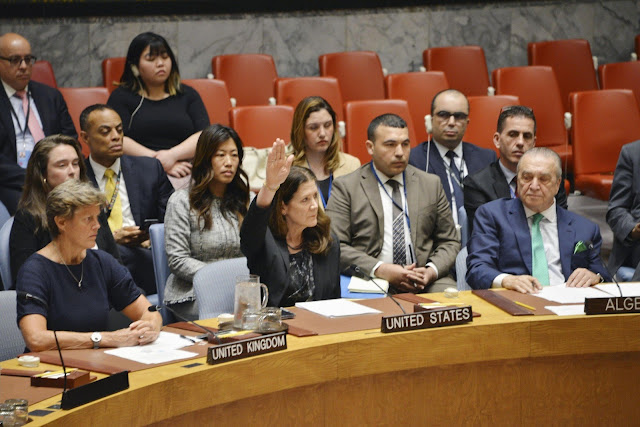On August 27, 2025, Mauritius was once again crowned the best-governed country in Africa according to the prestigious Chandler Good Government Index (CGGI), marking its fifth consecutive year at the pinnacle of the rankings. The announcement, made by Dinesh Naidu, Director (Knowledge) at the Chandler Institute of Governance, took place during the regional launch of the Index in Pretoria, South Africa. Rwanda and Botswana secured second and third places, respectively, rounding out the top three African nations in the 2025 rankings. This milestone underscores Mauritius’s consistent excellence in governance and highlights the strides made by other African countries in enhancing their governance frameworks despite a challenging global environment.
The CGGI, now in its fifth year, is a globally recognized and comprehensive measure of government capability and effectiveness, evaluating 120 countries across seven key pillars: leadership and foresight, robust institutions, attractive marketplace, financial stewardship, strong law and policies, global influence and reputation, and helping people rise through effective service delivery. The Index provides a nuanced assessment of governance quality, offering insights into the strengths and challenges faced by governments worldwide. For Africa, the 2025 CGGI reveals a complex picture of progress and persistent challenges, with standout performances from Mauritius, Rwanda, Botswana, Morocco, and South Africa, alongside notable improvements in countries like Tanzania. This article delves into the significance of the 2025 CGGI rankings, the achievements of Africa’s top performers, the broader implications for the continent, and the opportunities and challenges that lie ahead.
The Chandler Good Government Index: A Comprehensive Measure of Governance
The CGGI is a flagship initiative of the Chandler Institute of Governance, a Singapore-based organization dedicated to advancing effective governance practices worldwide. Launched in 2021, the Index has become a vital tool for governments, policymakers, and researchers seeking to understand and improve the quality of governance. By assessing 120 countries across seven pillars, the CGGI provides a multidimensional perspective on what constitutes good governance, moving beyond traditional metrics like GDP or economic growth to focus on the capabilities and outcomes of government systems.
The seven pillars of the CGGI are:
Leadership and Foresight: Evaluates the vision, strategic planning, and adaptability of government leaders in addressing national challenges.
Robust Institutions: Measures the strength, independence, and effectiveness of institutions such as the judiciary, legislature, and public service.
Attractive Marketplace: Assesses the business environment, including ease of doing business, regulatory frameworks, and economic competitiveness.
Financial Stewardship: Examines fiscal management, budgetary discipline, and the ability to manage public finances sustainably.
Strong Law and Policies: Analyzes the quality of legal frameworks, rule of law, and policy implementation.
Global Influence and Reputation: Gauges a country’s diplomatic influence, international partnerships, and global standing.
Helping People Rise: Focuses on service delivery, including access to education, healthcare, and social services, as well as efforts to promote inclusive growth.
These pillars collectively offer a holistic view of governance, emphasizing not only the efficiency of government operations but also their impact on citizens’ lives. The CGGI’s methodology is rigorous, drawing on a combination of quantitative data, expert assessments, and qualitative indicators to ensure a balanced and objective evaluation. For African countries, the Index serves as a critical benchmark, highlighting areas of strength and identifying opportunities for improvement in a region often grappling with complex socio-economic and political challenges.
Mauritius: A Beacon of Governance Excellence
Mauritius’s position as Africa’s best-governed country for the fifth consecutive year is a testament to its sustained commitment to effective governance, institutional integrity, and inclusive development. Ranked 51st globally in the 2025 CGGI, Mauritius has consistently outperformed its peers on the continent, earning praise for its stable political environment, robust institutions, and forward-thinking policies. The country’s success is rooted in a combination of factors, including strong democratic traditions, a transparent legal system, and a business-friendly environment that has made it a hub for investment and economic activity in Africa.
Mauritius’s governance model is characterized by its ability to balance economic growth with social progress. The country has invested heavily in education, healthcare, and social welfare, ensuring that its citizens benefit from the fruits of economic development. Its judiciary is widely regarded as independent and efficient, providing a strong foundation for the rule of law. Additionally, Mauritius has prioritized digital transformation, leveraging technology to enhance public service delivery and improve transparency in governance processes.
The country’s leadership has also demonstrated foresight in addressing global challenges such as climate change and economic volatility. Mauritius’s commitment to sustainability, evidenced by its renewable energy initiatives and environmental conservation efforts, has positioned it as a leader in green governance. These achievements have not only solidified Mauritius’s standing in the CGGI but also made it a model for other African nations seeking to strengthen their governance frameworks.
Dinesh Naidu, in his remarks during the Pretoria launch, highlighted Mauritius’s consistent performance as an inspiration for the continent. “Mauritius’s fifth year at the top of the CGGI rankings in Africa demonstrates that sustained commitment to good governance can yield remarkable results,” he said. “The country’s ability to maintain high standards across all seven pillars of the Index is a testament to its leadership, institutions, and people-centered policies.”
Rwanda: A Remarkable Success Story
Rwanda’s second-place ranking in Africa and 59th position globally mark it as a standout performer in the 2025 CGGI. Notably, Rwanda was recognized as the world’s best-performing low-income country, a distinction that underscores its remarkable progress in governance despite limited financial resources. Rwanda’s transformation over the past few decades, from a nation scarred by the 1994 genocide to one of Africa’s most dynamic economies, is a powerful example of how visionary leadership and institutional reforms can drive sustainable development.
The CGGI lauded Rwanda for its advancements in leadership, institutional strength, and service delivery. Under President Paul Kagame, Rwanda has implemented a series of reforms aimed at modernizing governance, reducing corruption, and improving public services. The country’s Vision 2020 and subsequent Vision 2050 strategies have provided a clear roadmap for development, emphasizing innovation, inclusivity, and accountability. Rwanda’s investment in digital governance, including e-governance platforms and smart city initiatives, has enhanced transparency and efficiency in public administration.
Rwanda’s success in the CGGI also reflects its focus on empowering its citizens through education, healthcare, and economic opportunities. The country’s efforts to promote gender equality, with women holding significant leadership roles in government and business, have set a benchmark for inclusivity in Africa. Additionally, Rwanda’s business-friendly policies have attracted foreign investment, boosting economic growth and creating jobs for its youthful population.
Naidu praised Rwanda’s achievements, noting, “Rwanda’s recognition as the world’s best-performing low-income country proves that national wealth is not a prerequisite for effective governance. Through visionary leadership and a commitment to reform, Rwanda has shown that progress is possible even in resource-constrained environments.”
Botswana: A Model of Stability and Reform
Botswana secured the third spot in Africa’s CGGI rankings, placing 61st globally. The country’s consistent performance in the Index reflects its reputation as one of Africa’s most stable and well-governed nations. Botswana’s success is attributed to its strong democratic institutions, prudent fiscal management, and commitment to the rule of law. The country has maintained a stable political environment since gaining independence in 1966, with regular elections and peaceful transitions of power.
In the 2025 CGGI, Botswana was particularly praised for its recent judicial digitalization reforms, which have streamlined court processes and improved access to justice. These reforms have enhanced the efficiency and transparency of the judiciary, reinforcing Botswana’s reputation as a country with strong institutions. Additionally, Botswana’s prudent management of its natural resources, particularly diamonds, has provided a stable economic foundation, enabling investments in education, healthcare, and infrastructure.
Botswana’s governance model emphasizes inclusivity and long-term planning, with policies designed to ensure that economic growth benefits all citizens. The country’s commitment to anti-corruption measures and transparent governance has earned it high marks in the CGGI’s robust institutions and financial stewardship pillars. Naidu noted, “Botswana’s judicial digitalization reforms and consistent governance performance make it a model of stability and progress in Africa.”
Morocco and South Africa: Notable Performers
Morocco, ranked 75th globally, emerged as the fourth-best-governed country in Africa, recognized for its improvements in data transparency and digital infrastructure. The country has made significant strides in modernizing its governance systems, leveraging technology to enhance public service delivery and promote accountability. Morocco’s Digital Morocco 2030 strategy has been a key driver of these reforms, aiming to position the country as a leader in digital governance in Africa and the Arab world.
South Africa, ranked 77th globally, remains a continental reference point for institutional capacity despite facing significant fiscal pressures. The country’s robust legal framework, independent judiciary, and vibrant civil society contribute to its strong performance in the CGGI’s robust institutions pillar. However, challenges such as high unemployment, inequality, and public debt have strained South Africa’s governance capacity. Despite these hurdles, the country’s commitment to democratic principles and institutional resilience has kept it among Africa’s top performers.
Tanzania’s Remarkable Progress
One of the standout stories in the 2025 CGGI is Tanzania’s remarkable progress, moving from 82nd to 78th globally since the Index’s inception in 2021. This improvement reflects Tanzania’s concerted efforts to modernize its governance systems and embrace technology-driven solutions. The country’s Digital Governance Project, which includes initiatives such as e-government platforms and digital service delivery, has enhanced efficiency and transparency in public administration.
Tanzania’s passage of the Data Protection Act is another milestone, strengthening the legal framework for data privacy and cybersecurity. These reforms have positioned Tanzania as a rising star in African governance, demonstrating the potential for technology to transform public services and foster inclusive growth. Naidu highlighted Tanzania’s progress, stating, “Tanzania’s Digital Governance Project and reforms such as the Data Protection Act are laying the groundwork for technology-driven governance solutions, showcasing the country’s commitment to progress.”
Africa’s Governance Challenges and Opportunities
While the 2025 CGGI celebrates the achievements of Mauritius, Rwanda, Botswana, Morocco, South Africa, and Tanzania, it also acknowledges that Africa’s overall performance remains the lowest globally. Many African countries face significant governance challenges, including weak institutions, corruption, and limited fiscal capacity. Fiscal management, in particular, remains a major hurdle, with debt burdens weighing heavily on development efforts across the continent. High levels of public debt have constrained governments’ ability to invest in critical sectors such as education, healthcare, and infrastructure, exacerbating poverty and inequality.
However, the CGGI also highlights the immense opportunities presented by Africa’s youthful population. With a median age of 19.7 years, Africa has one of the youngest populations in the world, offering a demographic dividend that can drive economic growth and innovation if properly harnessed. Naidu emphasized that governments must prioritize job creation, education, and inclusive growth to unlock this potential. “Africa’s youthful population presents opportunities if governments can deliver jobs, education, and inclusive growth,” he said. “Good government is built over decades, but every step forward matters.”
The CGGI also underscores the importance of digital governance as a tool for transformation. Countries like Mauritius, Rwanda, Morocco, and Tanzania have demonstrated that investments in technology can enhance transparency, improve service delivery, and strengthen institutions. By embracing digital solutions, African governments can address longstanding challenges such as bureaucratic inefficiencies and limited access to public services, paving the way for more inclusive and effective governance.
The Role of the CGGI as a Benchmark for Progress
The CGGI serves as a practical benchmark for governments seeking to track progress, strengthen institutions, and improve service delivery. By providing a comprehensive assessment of governance quality, the Index enables countries to identify areas of strength and weakness, set priorities, and implement targeted reforms. For African governments, the CGGI offers valuable insights into best practices and success stories, fostering peer learning and collaboration.
The Index also highlights the importance of sustained commitment to good governance. As Naidu noted, “Good government is built over decades, but every step forward matters.” The progress made by countries like Mauritius, Rwanda, and Tanzania demonstrates that incremental reforms, when consistently applied, can yield significant results. By focusing on long-term institution-building and people-centered policies, African governments can create a foundation for sustainable development and inclusive growth.
Implications for Africa’s Future
The 2025 CGGI rankings have significant implications for Africa’s future, both at the national and continental levels. For top performers like Mauritius, Rwanda, and Botswana, the rankings affirm the value of their governance models and provide a platform to share best practices with other countries. These nations serve as beacons of hope, demonstrating that effective governance is achievable even in resource-constrained environments.
For countries lower in the rankings, the CGGI offers a roadmap for improvement. By focusing on the seven pillars of the Index, governments can prioritize reforms in areas such as leadership, institutional strength, and service delivery. The success of countries like Tanzania, which has made significant strides in a short period, shows that progress is possible with the right policies and political will.
The CGGI also underscores the importance of regional collaboration in addressing shared challenges. Issues such as climate change, economic inequality, and youth unemployment require coordinated action across borders. By learning from each other’s successes and challenges, African countries can build a stronger, more resilient continent.
Conclusion
The 2025 Chandler Good Government Index reaffirms Mauritius’s position as Africa’s best-governed country, with Rwanda and Botswana close behind. The rankings highlight the progress made by African nations in strengthening governance, embracing digital solutions, and improving service delivery. Despite persistent challenges such as fiscal constraints and debt burdens, the achievements of countries like Mauritius, Rwanda, Botswana, Morocco, South Africa, and Tanzania offer hope and inspiration for the continent.
The CGGI serves as a vital tool for tracking progress and fostering peer learning, providing African governments with a roadmap for building stronger institutions and delivering better outcomes for their citizens. As Africa navigates a complex global environment, the Index underscores the importance of sustained commitment to good governance, inclusive growth, and innovation. With a youthful population and a growing embrace of technology, Africa has the potential to transform its governance landscape and unlock a brighter future for its people.






